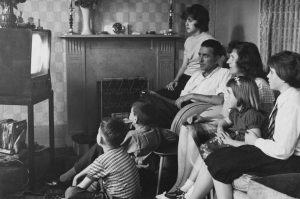I think it’s for the best if we ban all children’s books containing the word ‘dream’. Dream big, little dreamer, dare to dream…that sort of thing. And especially an unbelievably popular series of books for young school children, name of Little People, Big Dreams. There are hundreds of titles in this series and nearly four million copies sold worldwide. It’s a rare school that doesn’t stock them. Bin them all, I say.
Perhaps it sounds cruel to actively want to crush a child’s dreams, but it’s for their own good. The books sound cozy, aspirational, unobjectionable, but in fact, deep in children’s young and spongy minds, they’re sowing the poisonous seeds of false ideas that might later do them real harm.
Little People, Big Dreams is series of illustrated books for kids of five and over that tells the life stories of what it considers history’s admirable men and women: Darwin, Mary Shelley, Marie Curie, Malala, Elton John, RuPaul… The books imagine what these high-achieving adults were like as children: bright-eyed and bravely refusing to be cowed. The back of each book explains the conceit: ‘All of [these people] achieved incredible things, yet each began life as a child with a dream.’
This, then, is the first whopping lie told by the peddlers of dreams. It’s just plain untrue to say that the men and women of history started out by fantasizing about some great achievement. Marie Curie didn’t spend her time hankering for a Nobel Prize, she just got on with studying the science. In no possible world was John Lennon ‘the boy from Liverpool who dreamed of peace’. Lennon as a child, in his own words, ‘did my best to disrupt every friend’s home’.
What unites great men and women isn’t a capacity to dream big but a love of what they do and a capacity for sheer graft. ‘Her desire of knowledge is great, and her perseverance in everything she undertakes almost invincible,’ said Mary Shelley’s father of his daughter.
Emma Raducanu, shock winner of the US Women’s Open, is an absolute shoo-in for next year’s selection of Little People, Big Dreams. But did Emma lounge about as a pre-teen, fantasizing about winning the US Open? Nope. She practiced. Tennis before school, tennis after. What about a series called Little People, Big Homework? That would stand our kids in better stead.
Like many high-achievers, Emma and her opponent Leylah Fernandez were brought up by parents who pushed them relentlessly. Courtside, Leylah’s mother’s eyes burned with fathomless ambition. Little People, Pushy Parents? That’s nearer the mark too.
I have some sympathy for Little People, Big Dreams. The author, Maria Isabel Sánchez Vegara, looks cheery and her books are nicely illustrated. I admire her for including Mother Teresa as well as Marcus Rashford and RuPaul. I like to think of the progressive mothers of north London finding the Mother T book in their LPBD boxsets and standing there, nonplussed. The trouble is, Sánchez Vegara has spawned a slew of copycat books full of famous adults drawn with childish proportions: big heads, big wide-apart eyes. All feeding into the weird 21st-century idea that childish things are especially virtuous, and that it’s noble, not deluded, to dream of greatness.
I find it hard to hate Little People, Big Dreams, but I have nothing but cold contempt for Inspired Inner Genius, the publishers of another set of mini-biographies for kids. The books are designed, say the authors, to ‘help your kids meet their muse’ — though all they’re really helping along are more dream-based lies. The first is ‘greatness begins with a dream’, and the second is a classic bit of false logic: ‘So have a dream then, and you’ll be great.’ The Genius crew’s bestselling book is about Albert Einstein. The back reads: ‘Here at Inspired Inner Genius we believe every child is born a genius.’ Every child an Einstein? Unless the company’s run by actual cabbages, they can’t believe this.
What I expect they do believe is that there’s a lucrative market here, two separate streams of very different but very desperate customers. There are the middle-class parents whose worlds begin to crumble if they ever countenance the fact that their children might be ordinary. I’m not sneering at these parents. I’m one of them. I glow with terrible, vampiric pride when my five-year-old so much as eats its breakfast. Then there are the progressives, for whom it’s heresy to think that genetics or even diligence might play a part in achievement. Of course a dream is all you need, because we’re all born equal. The idea that children need to dream appeals strongly because it suggests that the dreamer is somehow oppressed, and that one day, when we lift the lid of patriarchal oppression, all children will rise to an equally glorious future. It’s somehow perfect that people who self-describe as ‘awake’ feel sure that children should spend their time dreaming.
When asked why he writes, America’s greatest living writer, Cormac McCarthy, replied by quoting another great writer. ‘Someone asked Flannery O’Connor why she wrote,’ he said, ‘and she said, “Because I was good at it.” I think that’s the right answer. If you’re good at something, it’s hard not to do it.’ That’s the chilly but invigorating reality.
And if you think for a second that these books are intended to inspire actual children, take a second look at their subjects. Who’s RuPaul to a modern-day toddler? What good will it ever do someone who’s five in 2021 to learn about the life of the Artist Formerly Known As Prince? This is political signaling through the medium of chewable board-books, and it comes at a cost. We’re bringing up a generation to fantasize, to put their energy not into discovering the world but into imagining themselves as future stars. It’s not such a good idea.
This article was originally published in The Spectator’s UK magazine. Subscribe to the World edition here.





















